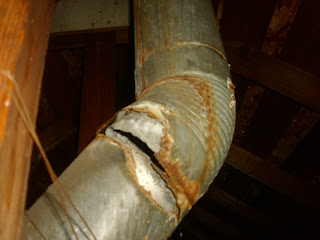About one out of every three radon measurements performed in Kansas are elevated, being above 4 pCi/l (picoCuries per liter). In 2015, Johnson, Wyandotte and Leavenworth counties in Kansas each recorded average radon values in excess of 4.0 pCi/L from all tests conducted.
The best way to ascertain if your house, or the house you're looking to buy, has a radon problem is to have a certified radon professional, such as Miki Mertz of Complete Home Inspection, do a test for you. Complete Home Inspection uses a continuous radon monitor that takes samples over a period of two full days, with the test unit placed in the lowest livable level of the house. Windows are kept closed throughout the time of the test. The test results are then averaged into an overall number for your final report. As mentioned earlier, if the radon level is higher than 4.0piC/l, then it should be fixed, or "mitigated". In Kansas, all residential real estate contracts include a recommendation that home buyers include a radon test on homes purchased. All radon tests performed during real estate transactions in Kansas must be conducted by a state-certified radon tester, such as Miki Mertz of Complete Home Inspection.
Additional information about radon can be found on the Complete Home Inspection web site at http://www.completehomeinspectionkc.com/kansas_city_home_inspection_051.htm, at www.kansasradonprogram.org, and at www.epa.gov/radon.
Whole house inspections, condo inspections, radon testing, mold testing, and more, we do it all for you. Call or E-mail today to schedule your Complete Home Inspection, 913-268-0222, www.completehomeinspectionkc.com.






